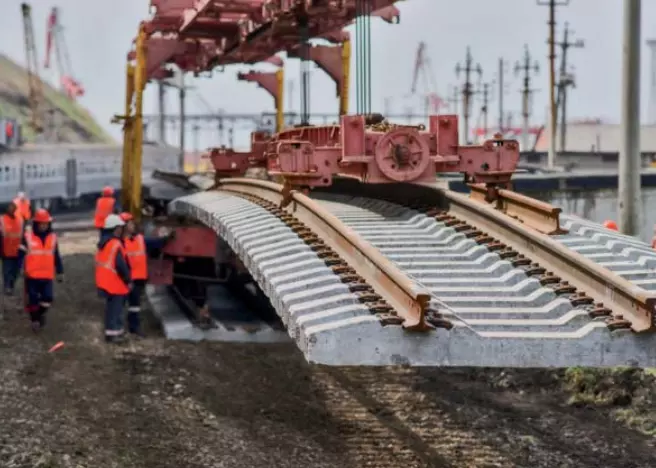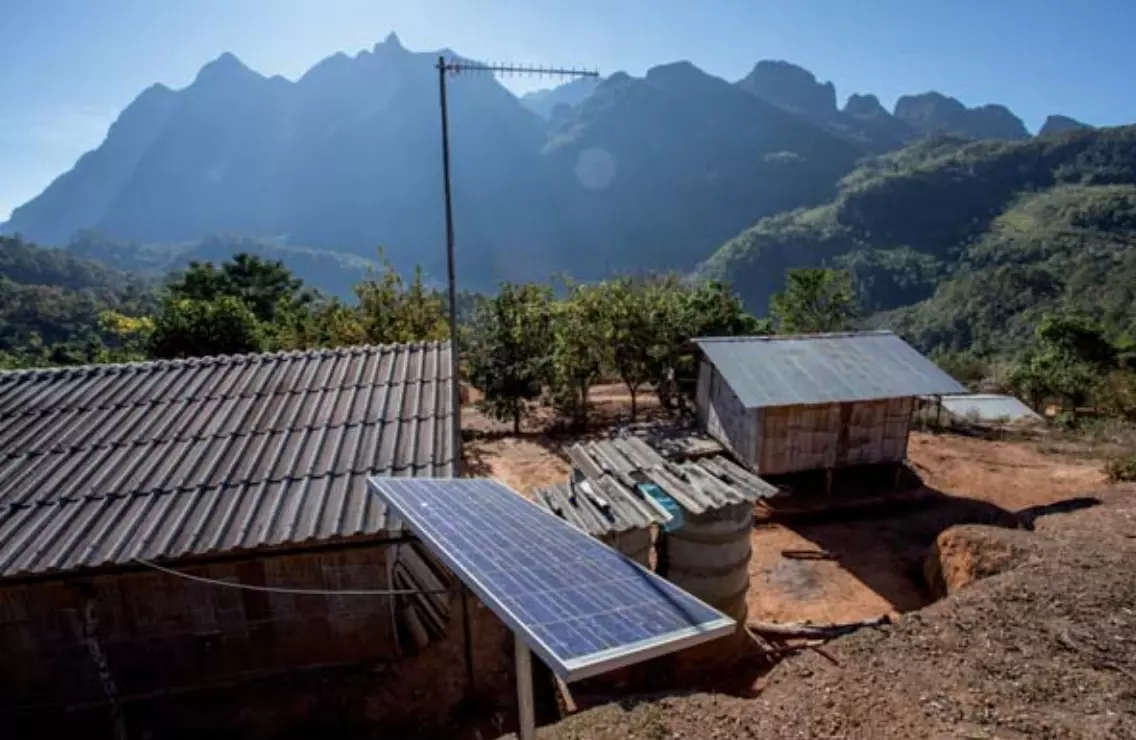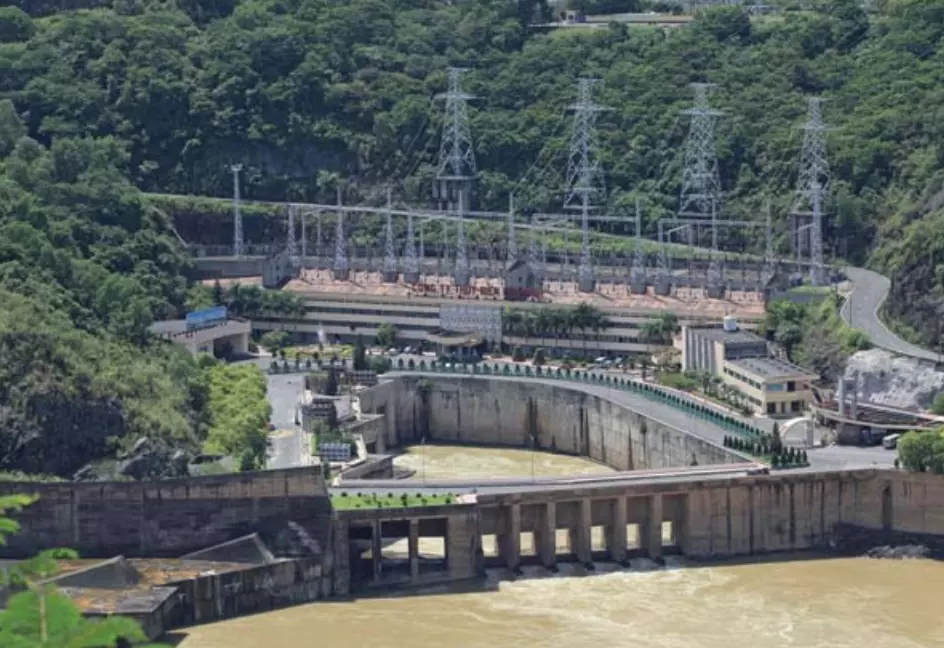► Foreword

> Nicolas Renard - Director of Foresight, Veolia Institute
Railways, highways, dams, navigable canals: major infrastructure inflicts deep wounds on the natural environment. In the 21st century projects are no longer conceived as they were three decades ago: thanks to environmental standards and the rising power of civil society, the era of forced wholesale landscape modifi cations is dead. But how to avoid damage, and how to make up for it when it cannot be avoided?
" Faced with the confrontation of opposing views, the secret of making major projects accepted lies in a shared creation of value. Although this is never easy, it is nevertheless possible."
► Introduction

> David MÉNASCÉ - Coordinator
David Ménascé is co-founder of the consultancy fi rm Azao, which works side by side with corporations, institutions and NGOs to bring integrated solutions to societal issues. He teaches at HEC Paris, notably as part of the “Social Business/ Enterprise and Poverty Chair”, for which he runs the course “New Business Models at the Base of the Pyramid”. He is also academic director of the Executive MBA programme “Reinventing Business in Emerging Markets”, in partnership with the University of Cape Town in South Africa and the Indian Institute of Management Bangalore in India. David Ménascé is a graduate of HEC and Sciences Po Paris.
► GOOD AND BAD PRACTICES REGARDING ENVIRONMENTAL AND SOCIAL ACCEPTABILITY OF MAJOR PROJECTS

Management of measures to reduce and compensate for the environmental impact of the LGV Sud Europe Atlantique Tours-Bordeaux high-speed rail line project
Abstract: The ambitious new Sud Europe Atlantique Tours-Bordeaux highspeed rail line profoundly reshapes the landscapes through which it passes, with consequences for biodiversity and for local residents. Given the multiple challenges (fi nancial, operational, legal and governance) related to the protection of biodiversity, the project team has decided to take responsibility for defi ning and managing impact reduction and compensation measures. A strategy built on stakeholder accountability, contractual commitments and shared governance has therefore been implemented.
Keywords: Rail concession, environmental impact, biodiversity, contractual commitments, governance
Thematic: Cities and Access to urban services

Building social license to operate through community engagement: the WUSC-Rio Tinto Alcan partnership in Ghana
Abstract: Presenting the case study of the WUSCRio Tinto Alcan partnership in Ghana, this article focuses on the benefits and challenges of a multi-stakeholder partnership between an NGO, a mining company, governments and local communities. Strong community empowerment, alignment of multiple stakeholders’ interests, and the contribution of an expert development NGO defi nitely contributed to the success of the project, while also strengthening Rio Tinto’s social license to operate.
Keywords: Mining sector, multi-stakeholder partnership, community engagement, NGO, Social license to operate
Thematic: Biodiversity and Natural Resources

Water for cities and rural areas in contexts of climate variability: assessing paths to shared prosperity – the example of Burkina Faso
Abstract: The water management authorities in Burkina Faso are, at present, succeeding in responding to the ‘bulk’ water demand of the capital city, Ouagadougou – located in the semi-arid central region of Burkina – through a major ‘supply-side’ infrastructure project, the Ziga dam and Ziga-Ouagadougou pipelines. This article questions, however, the long-term viability of the current approach. Ouagadougou’s status as economic and administrative capital gives it great power to plan for and mobilise investment for its own water supplies, at the expense of water for rural development. In the context of climatic changes and forecasts of substantial continued growth of the city’s population, the author argues for development of an urban-rural water strategy with a different allocation model to support a pathway to future prosperity in this semi-arid economy.
Keywords: Semi-arid lands in a lowincome economy, increasing climatic variability (rainfall), urban-rural watter allocation, Ziga and Bagré dams, urbanisation
Thematic: Biodiversity and Natural Resources

Insights gained from Total's societal strategy: from local acceptability to shared value
Abstract: Since 2000 Total has been developing local acceptability procedures in its subsidiaries and at its sites that comprise four main components: dialogue with local stakeholders, controlling the impacts of industrial activities, optimizing the contribution to the sustainable social and economic development of communities and territories where the Group operates and being recognized as a prime mover regarding access to energy. Now well established (with dedicated human resources, tools and methodologies), this societal strategy is facing several challenges that need to be met if the Group is to continue to achieve operational excellence and longevity
Keywords: Dilaogue with stakeholders, impact management, creation of shared value, access to energy
Thematic: Societal issues and Governance

The environmental and social acceptability of dams
Abstract: Dams are an ever more vital tool for addressing our growing water needs and the emergence of new challenges such as sustainable development and climate change. However, these infrastructures are still highly controversial around the world. Citing numerous examples, this paper goes over the main points of debate around dams, and the necessary conditions for securing their acceptability.
Keywords: Dam, hydroelectricity, local population, social acceptability
Thematic: Societal issues and Governance

Supporting the entrepreneurial Fabric: leveraging big companies’ social acceptability and sustainable impact on local development
Abstract: In view of the challenges developing countries are facing, big companies are setting up new models that seek to benefi t both themselves and local populations. Often conducted in partnership with NGOs, these projects involve training young people and providing support for SMEs, and enable big companies to undertake actions that have a lasting impact on a country’s development. In this interview, Xavier Boutin highlights the means to implement successful programs adapted to the local context by talking about the different projects carried out by the IECD in partnership with major companies. He also reveals the elements necessary for the success and sustainability of projects to train young people and support the local entrepreneurial fabric.
Keywords: NGO / Business partnerships, local content, training, support for local enterprises
Thematic: Societal issues and Governance
► Creating the conditions for success

The change in public attitudes to danger and its implications for major projects
Abstract: Nanotechnologies, GMOs, fracking, radioactivity… Modern societies are characterized by both the proliferation of risks and an increasing diffi culty in assuaging public opinion. This article analyzes how perceptions of danger have evolved and identifi es key questions when it comes to social acceptability of projects.
Keywords: Public opinion, precautionary principle, risk, threat
Thematic: Societal issues and Governance

True cost of water: monetization of water risks, shared value creation, and local acceptability of extractive projects
Abstract: Among industrial sectors, waterrelated risks are undoubtedly most closely associated with the extractive industries. To date, the response by the sector has been limited to funding philanthropic projects and implementing Corporate Social Responsibility. However, Veolia has developed a decision-making tool that monetizes water risks, with a view to not only reducing costs and preventing risks, but also creating new business and social opportunities.
Keywords: Extractive sector, water-related risks, monetization of water costs, creation of shared value
Thematic: Biodiversit y and Natural Resources

Political power, transparency, and the acceptability of major projects
Abstract: Participatory democracy, changing methods of communication, and political transparency are all factors explaining the growing interest among citizens and civil society organizations in the implementation of major projects. In this interview, Melchior Wathelet explains why political representatives and companies have to rethink their notions of participation and consultation in order to achieve a balance between protecting individual interests and defending the public interest.
Keywords: Transparency, participatory democracy, political power, public consultation
Thematic: Societal issues and Governance

Developing communities around factories through Strategic CSR - A Critical Step towards Shared Value in India
Abstract: The Indian CSR context has changed in the last few years (particularly following the amendment to Section 135 of the Indian Companies Act in 2013): there is now a requirement for corporate fi rms to devote 2% of their net profi t to social impact. The stake is particularly crucial for extractive and manufacturing companies, as community engagement and development is essential to gain their social license to operate. Through the cases of Ambuja Cements and other Indian companies, this article presents the four key factors of success of such strategies: co-creation, sustainability, local teams and long-term investment
Keywords: Indian companies act, stakeholder engagement, local communities, sustainability, business strategy
Thematic: Societal issues and Governance

NGO-BUSINESS partnerships: a Win-Win Model
Abstract: NGO-business partnerships have been multiplying for several years now. These new alliances help to strengthen the legitimacy and social acceptability of companies, but they also – above all – make essential goods and services accessible to a wider population. In this way, these partnerships boost the effi cacy of NGO actions while reinventing the way in which businesses envisage their activity in developing countries. In this interview, Franck Renaudin goes back over the potentialities, the key success factors and the possible risks associated with these new forms of partnership. The founder and executive director of the NGO Entrepreneurs du Monde explains how these partnerships appear to offer a win-win model for NGOs and for businesses – provided that they are put in place with sincerity, conviction and good will.
Keywords: NGO-BUSINESS partnerships, essential goods and services , authenticity, complementarity, innovation
Thematic: Societal issues and Governance
► Assessing the success of the acceptability approaches

Social acceptability of large infrastructure projects in Vietnam
Abstract: We compare international best practice guidelines on Social Impact Assessment with current practices in Vietnam, based on a desk review of relevant regulations, participative observation, stakeholder interviews and three case studies. We fi nd that infrastructure development is booming in Vietnam despite administrative complexity and ineffi ciencies; resettlement for hydropower projects has become a kind of lightning rod for questions of environmental justice; and compensation is the key issue there, overshadowing other social impact considerations. Options to improve the investment of all stakeholders in the social impact assessment and management are discussed.
Keywords: Social impact assessment, infrastructure development, hydropower projects, resettlement
Thematic: Societal issues and Governance

The costs and benefits of calculating the nt present value of Corporate Diplomacy
Abstract: This article aims to demonstrate how social, political and environmental risk management can be integrated into a fi nancial framework. To do so, corporate diplomats must use the same tools and performance indicators that their counterparts in operations, marketing or fi nance use. The fi nancial valuation, both in terms of avoided cost and net value added by acceptability strategies appears to be a necessary condition to have them leave their siloes and gain acceptance across an organization.
Keywords: Stakeholder engagement, corporate diplomacy, costs and benefits, financial returns, net present value
Thematic: Societal issues and Governance

